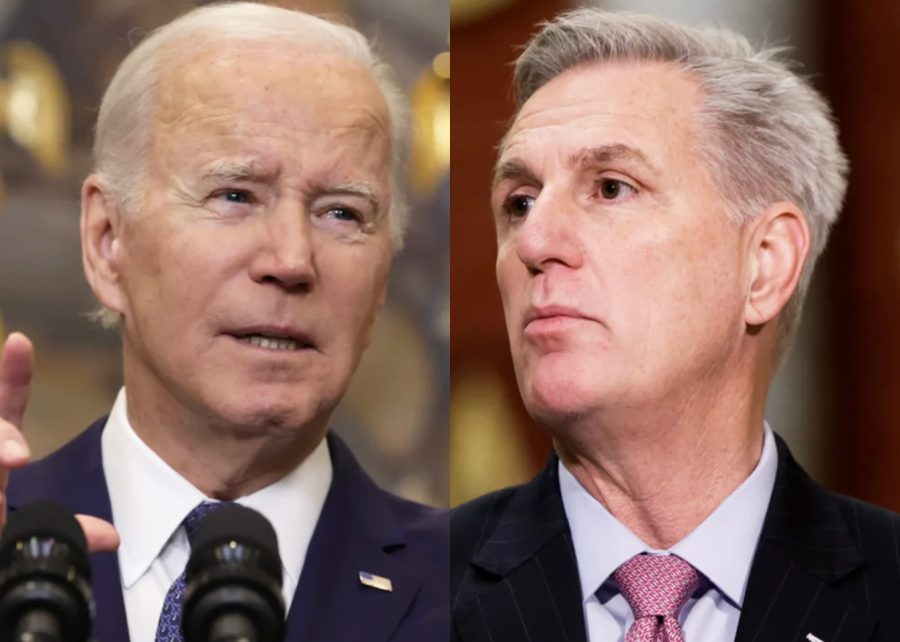America’s Debt Ceiling
For the past 60 years, American citizens and residents have enjoyed a luxury that many of them do not even recognize. This luxury is known as “dollar supremacy,” a collection of the countless benefits that the American dollar’s stability and global use provide.
The United States Dollar (USD) is by far the world’s most traded currency and is unofficially the world’s reserve currency. Dollar supremacy allows the American government to enjoy large amounts of freedom in spending with little short-term consequences. Many crucial government programs rely on the government being able to spend like this, and losing this would harm a large portion of the American people.
On May 28, President Biden and Speaker McCarthy reached a solution to suspend the debt ceiling until 2025. The deal does not provide an adequate long-term solution to improve the national debt and instead sets the country up to have another dispute two years from now. The compromise reached by Biden and McCarthy just expands the debt ceiling further and pushes the threat of a default further back. The American government cannot expand the debt ceiling endlessly, and must control its debt more responsibly in a way that will not negatively impact the welfare of the American people.
When a country defaults on its debt, they admit that it admits that it cannot pay back what it owes. This tarnishes the country’s reputation and prevents them from easily extracting more money in the future. The U.S. has never taken such actions, and therefore has a reputation for being fiscally responsible and low-risk.
As Boston Latin School economics teacher Mr. Dominic Rinaldi puts it, “The ‘lower risk’ a country is, the more likely creditors are to lend money and investors are to invest there. A country that is deemed ‘high risk’ will have a tougher time participating effectively in the global economy. And as much as some hate it, the world is completely globalized and no country can survive entirely on its own.”
The government has to prevent default in order to avoid drastic consequences. Aidan Ormsby (II) explains that “services that are crucial for our country’s functioning like social security would be depleted.” The country’s military would also be put at risk from a default with defense companies facing their contract payments delayed, halted production, as well as the pensions and healthcare funding for veterans being depleted. Not to mention, the millions of federal employees could have suddenly stopped receiving paychecks as the government would have run out of funds to pay them.
Although it is definitely needed right now, constantly raising the debt ceiling is not ideal in the long term. Zach Chen (II) states, “In the long term a better solution must be found or we will risk having the U.S. dollar replaced as the World’s reserve currency.” The government must control its debt over time by expanding taxes on corporations and the wealthy, as well as control excess spending on unnecessary activities and projects.
This may seem unattainable, but it is actually what the Biden Administration set as a focal point in their negotiations. Biden’s plan to raise taxes on the wealthy and corporations would provide adequate funding and stability to our country’s welfare system. Unfortunately, Speaker McCarthy refused to accept many of Biden’s proposals unless he agreed to cut down on funding for welfare programs, therefore voiding Biden’s goals. Biden must not accept any deal like this because it would make taking on more debt arbitrary if the government just reduces the quality of the programs it is trying to protect in the first place.
These pointless negotiations have become far too commonplace in American democracy and reflect how growing partisanship is causing the government to prioritize useless charades no matter how close it comes to bringing society near crashing down. The country desperately needs to find an effective long term solution to the debt ceiling that protects social welfare and takes from the wealthy instead of from programs that support the well-being of American citizens.







